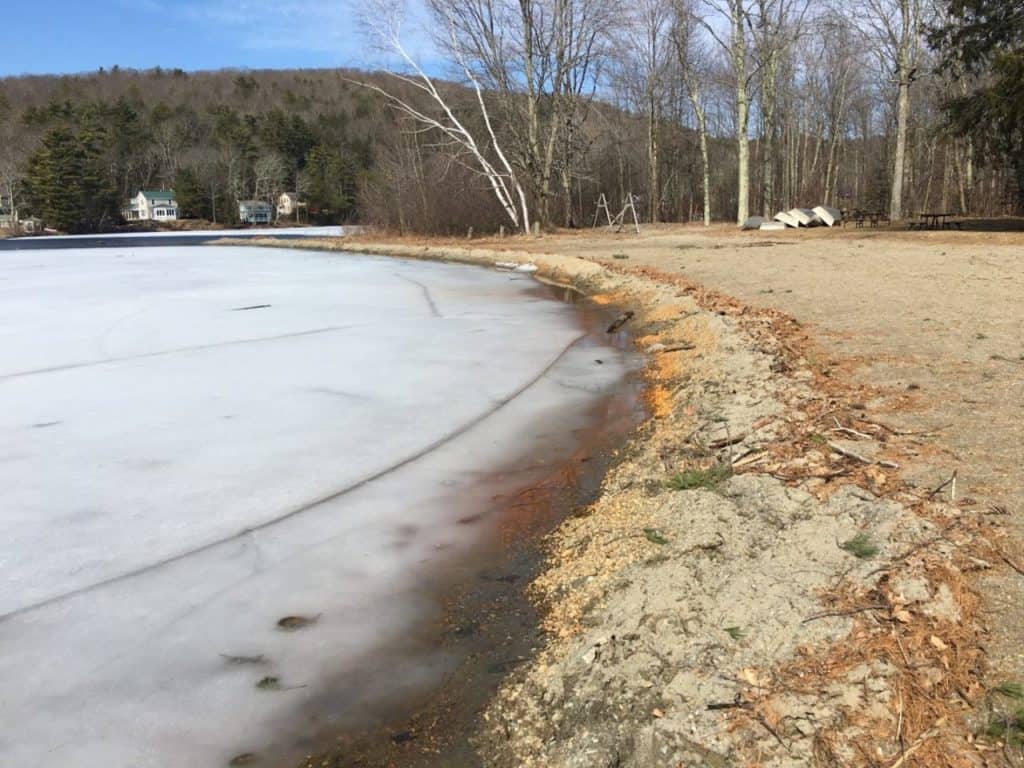
The Vermont Department of Environmental Conservation (DEC) is asking Vermonters to report when lakes and ponds lose their ice cover, also known as the “ice-out date.” Once a lake or pond is completely free of ice from shore to shore, DEC scientists can begin their spring water quality sampling efforts. The ice-out data also helps scientists track the effects of climate change in Vermont.
“We need the public’s help to alert us to ice-out information to better time our data collection,” says Oliver Pierson, Lakes and Ponds Management and Protection Program Manager. “The more data we have from around the state on the timing of ice out, the better we can track water quality changes and impacts from climate change on our lakes.”
DEC scientists have been collecting spring water quality information since 1977. When lakes are covered in ice, the water underneath is layered or “stratified” into sections based on water temperature, with the coldest water temperatures near the surface. Soon after the ice cover is gone in the spring, the water layers weaken and mix. When the water mixes, scientists collect water samples to see the total amount of phosphorus a lake will have available during the growing season for phytoplankton, algae, and aquatic plants.
“We try to sample lakes within 7 to 10 days of ice-out, because that’s the best time to collect information about the average conditions in the lake at the start of the growing season,” said Leslie Matthews, Environmental Scientist with DEC. “Tracking ice-out dates over time can also be important because in some lakes, earlier ice-out may lead to more phosphorus release from sediments during the summer, which can help fuel algae blooms and growth of aquatic nuisance vegetation.”
The Department of Environmental Conservation has an online ice-out reporting form that the public can use to share their observations.
Many lakes and ponds around the state hold ice-out contests, usually in the form of a raffle where the winners can receive cash or prizes. Some of the more famous and long-running ice-out contests are on Joes Pond (Danville), Lake Memphremagog, Lake Iroquois, and Sunset Pond in Brookfield. These contests are a great way for lake associations to engage the public and to encourage folks to keep a keen eye on changes to ice cover. In terms of reporting ice-out data to the Department, Leslie Matthews explains that the ice-out date used by the State is the date at which ice cover is gone from shore to shore, as opposed to some of the ice-out contests that may be observing ice-out in a particular location on the water.
For more information, please visit The Vermont DEC Lakes and Ponds website: dec.vermont.gov/watershed/lakes-ponds.




